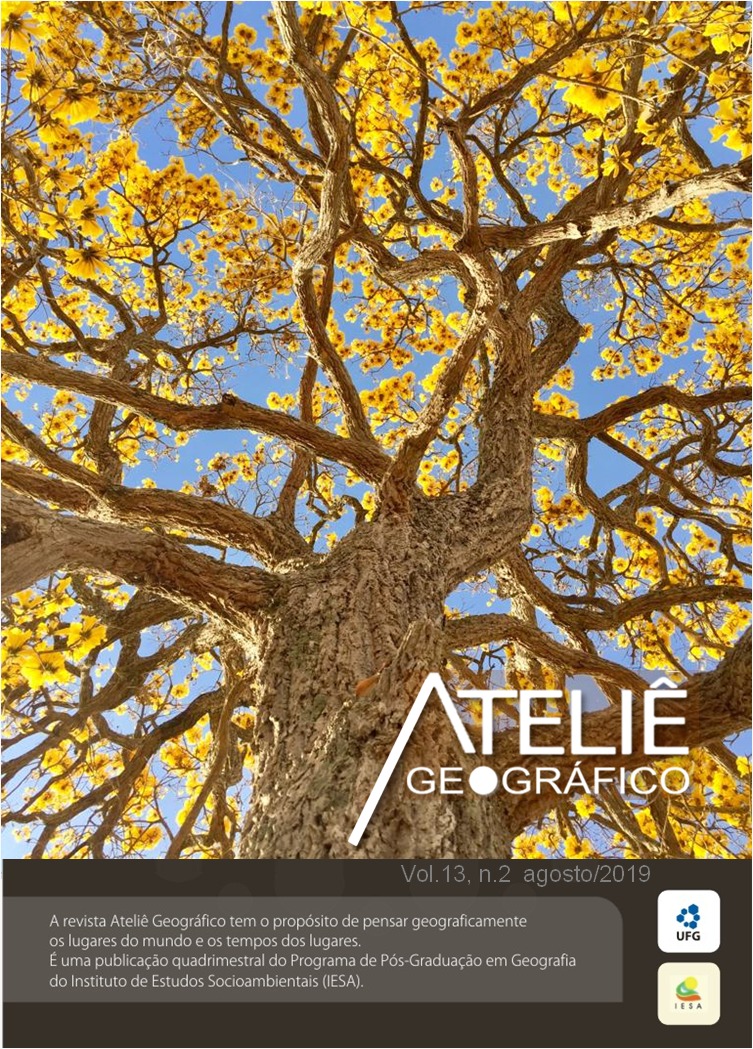Produção dos territórios turísticos no Ceará
DOI:
https://doi.org/10.5216/ag.v13i2.58288Resumo
Transformações socioespaciais marcaram a zona costeira do Ceará nas últimas duas décadas. Verifica-se planejamento voltado à constituição de base econômica pautada nas práticas marítimas modernas, notadamente o turismo e a vilegiatura. Tais atividades possibilitam a inserção de sistemas técnicos objetivando a ampliação dos fluxos turísticos e modernização nas zonas de praia cearenses. Este artigo compreende os desdobramentos das intervenções públicas e privadas no Litoral Oeste do Ceará, como processo multiescalar capaz de modificar as bases políticas, econômicas, sociais e culturais do território. Para tanto, recorreu-se a referencial teórico sobre o planejamento turístico, os vetores de expansão urbana e as práticas marítimas modernas. Ainda, documentos oficiais permitiram a análise das políticas de turismo, enquanto as entrevistas estruturadas, o acervo fotográfico e cartográfico, possibilitaram a compreensão das dinâmicas socioespaciais nos municípios. Constatou-se que o processo de turistificação da Costa do Sol Poente suscitou não somente o aumento dos fluxos e fixos ligados à atividade turística, mas também novas tipologias ligadas à vilegiatura marítima e a complementaridade entre as duas práticas abordadas.
Palavras-chaves: Turismo, Planejamento, Litoral Oeste do Ceará.
Downloads
Downloads
Publicado
Como Citar
Edição
Seção
Licença
Autores que publicam nesta revista concordam com os seguintes termos:- Autores mantém os direitos autorais e concedem à revista o direito de primeira publicação, com o trabalho simultaneamente licenciado sob a Licença Creative Commons Attribution que permite o compartilhamento do trabalho com reconhecimento da autoria e publicação inicial nesta revista.
- Os autores não serão remunerados pela publicação de trabalhos na Revista Ateliê Geográfico. Além disso, os conteúdos publicados são de inteira e exclusiva responsabilidade de seus autores, ainda que reservado aos editores o direito de proceder a ajustes textuais e de adequação às normas da publicação.
- Autores têm permissão e são estimulados a divulgar seu trabalho online (ex.: em repositórios institucionais ou na sua página pessoal), já que isso pode gerar alterações produtivas, bem como aumentar o impacto e a citação do trabalho publicado (Veja O Efeito do Acesso Livre).


